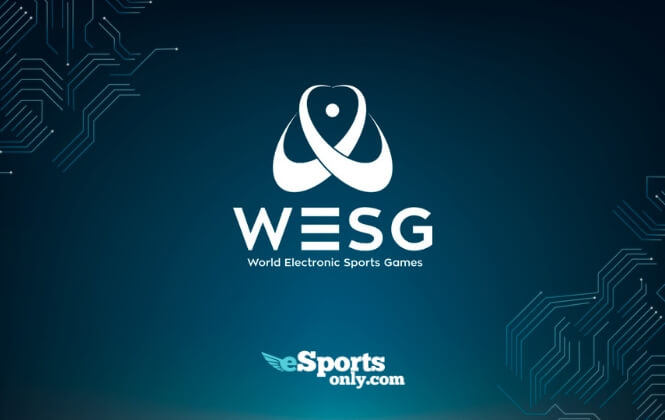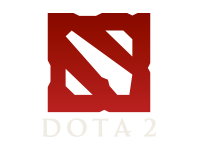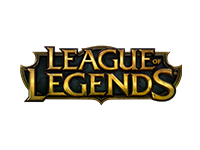The World Electronic Sports Games (WESG for short) is an esports event that is hosted by the Chinese conglomerate Alibaba group. On January 12-15th 2017 in Changzhou, China we witnessed the first iteration of this event. It incorporated various esports tittles like CS:GO, Dota 2, Starcraft 2 and Hearthstone. All had their separate prize pools and the astonishing thing was, the amount of money that dished out for the prize money. For CS:GO that was 1.5 million dollars, something that was hardly believable. The only events that could’ve come even close to such money, was the first 1 million dollar Major’s of 2016. Since then they have done 2 more events with varying reception from the community. Because of this the events don’t seem to garner too much fanfare and are not a highlight of the Counter-Strike scene. In this article I will point out some of the areas WESG has been underwhelming and other areas where they excelled.
WESG – Divide Et Impera
Here’s a line from the official WESG rule book regarding participation: “All team members must have the same nationality”. In the modern landscape of Counter-Strike, this is one of the reasons which deterred a lot of teams from participating in the event. Taking a quick glance at the top teams of CS:GO, it’s no secret that they are comprised of people with different nationalities. A team like Liquid have players from the NA region (Canada and USA), Na’vi, which represents CIS, has players from Russian and Ukraine. In order to compete, they would have to split up their rosters and get stand-in’s from their respected countries. And for teams that are comprised of different nationalities and regions à la cloud 9 and Faze it would be a nightmare to set-up a proper team to participate. However, we did see a similar style tournament in CS:GO’s history and that was The World Championship (TWC). It had the same concept of teams representing a country, but there was a twist, an already existing team couldn’t compete with the same players and they’d have to assemble an entirely new roster. This made the playing field more even and it had a laidback tone as the games were played out in an off-season. But with the CS schedule being as tight as it is nowadays, it’s understandable why players and teams don’t want to invest in a short-term project for an event in China.

World Electronic Sports Games Seeding Issues
Throughout the years, there have been various seeding systems at play, for different Counter-Strike events. The Global Starcraft Format (GSL) was a very widely used and is still the preferred choice of some tournament organizers out there. The latest revelation came in the form of the swiss format and it’s a format with some flaws, but it has led to some good match-up’s further down the road of a tournament. In the WESG 2018 group stage they use the round-robin system of 8 groups of four teams. Before the tournament could even begin there was some questionable seeding involved. For starters, Group E consisted of 4 European teams: Windigo, Fantic, Ence and Movistar Riders. And for comparisons sake, Group D consisted of teams from the APAC region like MVP PK, Frostfire, Furious and Absolute. Because some of the teams like Ence and NiP didn’t attend the event due to Visa issues, a group consisting of 2 teams (WESG 2018 Group C) must play a match for the play-of seeding. There are some good reasons why this format has been abandoned by the tournament organizers of today. It doesn’t guarantee meaningful matches and has a lot of caveats attached to it. And once you make it out of the groups, for example, as the first seed, there’s still no guarantee that you will play a weaker opponent. Because of the random team seeding in the groups the play-off’s are really lackluster. Up until the top 8 stage you still see the wheat being separated from the shaft as top 30 teams play against teams that are in the hundreds in terms of ranking.
Lackluster Player Treatment
The very first WESG event in China had a peculiar aura attached to it. The opening ceremony had theatrical and dance performances, after which teams from varying countries made their way on the stage and swore in to obey the rules of an esports athlete. Yes, that was an unusual opening for a esports tournament nowadays. And just like in traditional sports after the grand-finals we witnessed the flags of the countries, display on an elevated level, accordingly to the place they finished. It is clear, WESG wanted to produce a tournament something akin to traditional sports. The problem is, that the treatment of the players is something more reminiscent of the early days in esports. In next year’s event the players were greeted ”in a mouldy, cockroach-infested hotel that had wooden supporting beams holding up what seemed to be a crumbling ceiling, with brown water running from the tap to polish things off” Cybersports.ru report. After a statement issued by WESG, the players were transferred to better hotels, but the reputation damage had already been done. This year’s WESG has had its fair share of mishaps, but nothing on the level of last year’s hotels. However, from the top 8 stage of the play-off, the players were forced to play with a new Valve update mid-tournament. The patch had gameplay changes for some of the weapons and a massive economy overhaul. Because the organizer couldn’t switch back to play on a pre-update version of CS, they decided to continue playing with the new patch, without the economy changes. Because of these mishaps, the Chinese organized event has negative connotations.
Those were some of the problems that have been acknowledged by the community. These glaring issues are very hard to ignore, however, there are some areas that the tournament has excelled compared to some of the events which are organized in Counter-Strike.
Reaching A New Frontier
The Counter-Strike Majors are commonly referred to as the World Championship. And for good reason. It’s the event that has a lot of high ranking teams and participation in one of these events means you left a footnote in the history of Counter-Strike. However, the term “World Championship” can be regarded in different ways. The earlier definition I mentioned was an event where the highest ranked teams provide the viewers with an enjoyable and competitive experience. The other way to understand it would be the celebration of “Global Offensive” as a truly global esports title, where we see the participation of various regions and continents in this one grandiose tournament. The latter is especially true for the World Electronic Sports Games. Here is an event which allows direct qualification to the finals in China. Regions such as the Americas, North and South Africa, APAC and more can compete in this tournament, thanks to the qualification system. An underdog team may not succeed in such an event, but it’s a good opportunity to garner much-needed experience from such an opportunity. And if a region does find a way to succeed against greater opponents, that’s a David versus Goliath storyline that can encourage the next generation to partake in more international tournaments.
WESG’s Prize Pool
Many among us are craving for a CS:GO International type event. Where the best of the best end-up competing over a weeks-long event. The majors provide us with a somewhat familiar appeal, but it doesn’t always have the best teams competing, due to how the legend system works. Now, what if WESG took up the burden to create an international style tournament? First of all, they’d have to ditch their current standing on nationalities and qualification, in order for it to work. If they do so, they can begin by taking a look at the rankings of highest ranked teams of the year and begin handing out invites for an epic brawl. With the current prize money they have for CS:GO, it wouldn’t come of as a big surprise if they decided to dish out even more money to make WESG more relevant in the Counter-Strike calendar year.
As a concept, WESG is somewhat flawed in the modern day of Counter-Strike. The random seeding, rule-set, and stigma attached to the event are some of the main issues of this tournament. There are some bright sides, like the qualification process which gives an interesting spectacle of how CS is a truly global esport. It really depends on the organizers how they want to continue to approach this event, but one thing is for certain if the problems I mentioned earlier get fixed (which is definitely possible) this could become an interesting event for the future that attracts more CS:GO fans.














